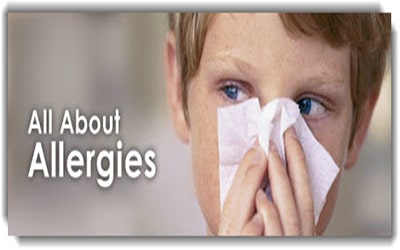world doctors
|
|
All About Allergies
|

|
|
The greatest international website of world doctors :
|
|
An allergy is an overreaction of the immune system to a substance that's harmless to most
|
|
people.
|
|
But in someone with an allergy, the body's immune system treats the substance (called an
|
|
allergen) as an invader and overreacts, causing symptoms that can range from annoying to
|
|
serious or life threatening.
|
|
In an attempt to protect the body, the immune system of the allergic person produces antibodies
|
|
called immunoglobulin E (IgE).Those antibodies then cause mast cells and basophils (allergy cells
|
|
in the body) to release chemicals (including histamine) into the bloodstream to defend against the
|
|
allergen "invader."
|
|
It's the release of these chemicals that causes allergic reactions, affecting a person's eyes, nose,
|
|
throat, lungs, skin, or gastrointestinal tract as the body attempts to rid itself of the invading
|
|
allergen. Future exposure to that same allergen will trigger this allergic response again. This
|
|
means that every time the person eats that particular food or is exposed to that particular
|
|
allergen, he or she will have an allergic reaction.
|
|
Allergies can be seasonal (happening only at certain times of the year, like when pollen counts
|
|
are high) or can occur any time someone comes in contact with an allergen.
|
|
|
|
Who Gets Allergies?
|
|
The tendency to develop allergies is often hereditary, which means it can be passed down through
|
|
your genes. However, just because you, your partner, or one of your children might have allergies
|
|
doesn't mean that all of your kids will definitely get them, too. And someone usually doesn't inherit
|
|
a particular allergy, just the likelihood of having allergies.
|
|
But a few kids have allergies even if no family member is allergic. And a child who is allergic to
|
|
one substance is likely to be allergic to others.
|
|